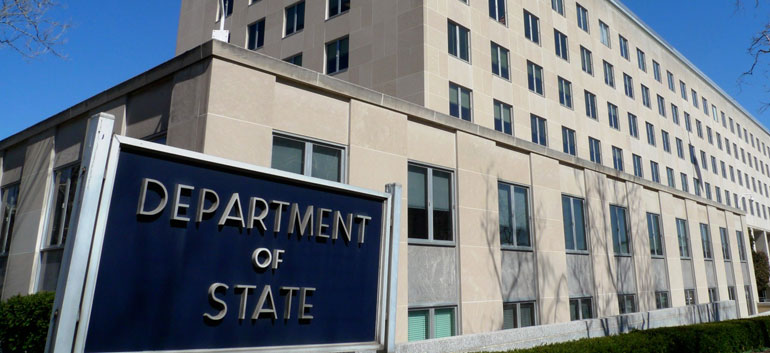The US Department of State has criticized Colombia for an inefficient judiciary, forced displacement, corruption, and social discrimination in its annual Human Rights Report on Thursday.
Published by the Bureau of Democracy, Human Rights and Labor, the 2013 report found the ongoing civil conflict in Colombia to be the leading cause for the state’s inability to prosecute human rights abusers, protect its citizen from forced displacement and the continuing social discrimination of the indigenous and Afro-Colombian population.
The complex five-decade-long conflict between government, armed guerrilla and paramilitary forces has exacerbated corruption within the military and the legal system, facilitated the problematic drug trade, entrenched criminal and neo-paramilitary groups and allowed human rights abuses to go unpunished.
MORE: Violence against human rights workers in Colombia up 2.4% in 2013, murders up 11.6%: Report
The report noted that the intimidation of judges and juries — by both right and left-wing and right-wing armed groups — limits the state’s ability “to effectively prosecute individuals accused of human rights abuses and to bring to trial former members of paramilitary groups,” known to have violated tens of thousands of human rights violations in the 1980s and 1990s.
Judicial corruption was reportedly enabled by the “availability of drug-trafficking revenue” now in control of neo-paramilitary groups and rebel groups like the FARC and ELN, who have turned to the trade as the armed conflict intensified and continued.
Current peace talks between the Colombian government and the FARC rebel group, the country’s largest, have resumed in Cuba with the discussion of drug trade high on the agenda.
MORE: FARC peace talks on drugs issue resumes amid tensions over military
Issues of corruption also continue to plague both Colombian politicians and the country’s military, which is accused of having past and continuing links to illegal paramilitary and neo-paramilitary groups — such as the now-defunct AUC — perpetuating their impunity as they continue to commit human rights abuses.
The report lists both guerrilla and paramilitary groups as perpetrators in past and current “political killings; killings of members of the public security forces and local officials; widespread use of land mines and improvised explosive devices (IEDs); kidnappings and forced disappearances,” among many more.
The FARC and ELN groups are reported to be the highest users landmines and IEDs that forcing the displacement of thousands of people, many of which are of Afro-Colombian and indigenous decent who populate the remote and lower socio-economic regions of the country. The report highlights the 31 deaths and 254 injuries caused by IEDs in August 2013, which include 38 children “killed or injured” throughout the year.
MORE:Mass displacement of Afro-Colombians in southwest Colombia
Other highlighted issues included extrajudicial and unlawful killings — often linked with the “insubordinate military collaboration with members of illegal armed groups” — overcrowded and insecure prisons,
On the topic of ongoing child recruitment in the country, the report states that “International organizations continued to identify recruitment of indigenous youth by illegal armed groups as a serious concern. The FARC (guerrilla group) continued to issue warnings to indigenous communities outlining a policy to conduct child recruitment and warning recipients not to challenge it.”
MORE: FARC systematically recruits child soldiers: Study
However the Bureau of Democracy, Human Rights and Labor report acknowledged that the Colombian Government has continued in its efforts to prosecute and punish perpetrators — including members of the security services — and highlighted the increased resources for the prosecutor general’s office.
Colombia continues to be one of the main recipients of US foreign aid in the world, much of which has been military aid utilized to combat drug-trafficking and armed groups. International NGO bodies, such as amnesty international, have “repeatedly” called on the US government to halt its support “due to the continued collaboration between the Colombian Armed Forces and their paramilitary allies as well the failure of the Colombian government to improve human rights conditions.”
Sources
- Country Reports on Human Rights Practices for 2013 (US Department of State)
- U.S. Policy in Colombia (Amnesty International)


